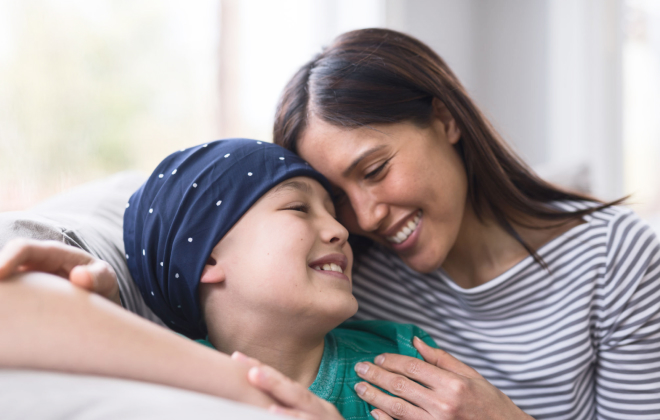


For decades, cancer has been one of the most feared diseases in the world, mostly because of the amount of uncertainty around the disease. Even today, researchers are exploring the vast field of cancer and revealing the mysteries that frequently surround this complex topic.
We are here to answer 10 of the most commonly asked concerns about cancer. Whether you are a patient or a caregiver, these answers will help you obtain a preliminary understanding of the disease.
Let’s start with the major issue at hand – what causes the disease? Cancer is a complex challenge, and its causes resemble a puzzle with various pieces. While genetics certainly play a part, our lifestyle choices also have a significant impact. Smoking, an unhealthy diet, lack of exercise, and exposure to specific chemicals act as fuel for cancer. It is important to remember that it is not solely one factor, but rather a combination of elements that can heighten the risk.
Well, the good news is that there are certainly ways you can reduce the risk. Follow a healthy lifestyle with a balanced diet and exercise, avoiding tobacco and limiting alcohol consumption lower the chances. Protecting yourself from harmful UV rays and getting vaccinated against certain viruses can help as well. Regular screenings for various cancers increase early detection and improve treatment chances. Overall, these methods greatly reduce risks and improve well-being. However, nothing is foolproof.
Diagnosing cancer is like detective work for doctors. When diagnosing cancer, healthcare professionals use various methods. Doctors begin by conducting a physical examination and imaging tests to identify any anomalies in the body. They then perform a biopsy, examining tissue samples for the presence of cancer cells.
In addition, various tests measure substances that could indicate the presence of cancer, while molecular testing examines genetic abnormalities in cancer cells. Lastly, staging and grading methods are used to classify cancers based on their specific characteristics. These procedures are crucial for planning effective cancer treatments.
One common misconception out there is whether or not cancer is contagious. Well, cancer is not contagious like the cold or flu. It is caused by abnormal cell growth in our bodies, not by being around or touching someone with cancer. However, certain viruses, like HPV, can increase the risk of developing certain types of cancer. But even in those cases, only the virus, not the cancer itself, can be transmitted through close contact.
So, while you don’t have to worry about catching cancer from someone else, it is still important to take precautions, such as getting vaccinated and maintaining a healthy lifestyle.
Cancer treatment often causes hair loss because the medications and therapies used target rapidly dividing cells. Chemotherapy drugs, for example, hinder the ability of cancer cells to multiply, but they also affect hair follicles that have rapidly dividing cells. This leads to weakened hair strands that either break off or do not grow. Radiation therapy can directly damage the hair roots by harming the DNA within cells responsible for producing hair shafts.
It is important to note that this hair loss is temporary, and once treatment is finished, new hair gradually starts to grow back until a full head of hair is restored over time. Although this hair loss can affect a person’s self-esteem, it is crucial to remember that it is usually temporary.
Absolutely! Overcoming cancer is a huge triumph that deserves to be celebrated, and countless survivors go on to lead incredibly fulfilling lives. It may take some time to regain your strength, and there might be a few adjustments along the way, but there are countless survivors out there who serve as living proof that life after cancer can be full of vibrancy and meaning.
Yes and no. Some people experience pain during cancer, while others don’t. Pain can result from the cancer itself or its treatment. Fortunately, there have been significant advancements in pain management, ensuring that individuals fighting cancer can receive effective relief and maintain a good quality of life.
The relationship between sugar and cancer is complex. While consuming sugar itself doesn’t directly cause cancer, consuming excessive amounts of added sugars can contribute to obesity and conditions like type 2 diabetes, which are risk factors for certain types of cancer.
Additionally, high-sugar diets often mean a lack of nutrient-dense foods, leading to an unhealthy lifestyle and potentially increasing cancer risk indirectly. Thus, it is important to maintain a balanced diet with limited added sugars.
Let’s not sugarcoat it – yes, cancer can be deadly. However, it is important to emphasise that not all cancers are equal, and advancements in treatment have significantly improved survival rates. Early detection and prompt, targeted treatment can make a world of difference. The key is to stay informed and proactive.
Every cancer patient needs support and if you want to provide support to someone, kudos to you. You can show your support by being a compassionate listener, offering practical assistance with daily tasks, and helping them with their emotional well-being. You can even accompany them to medical appointments if they want you there, and keep things as normal as possible by engaging in shared activities.
Little acts of kindness, such as cooking a meal or sending uplifting messages, can truly make a big difference. Ultimately, just being there for them and showing that you genuinely care can go a long way in their journey.

And there you have it! Ten frequently asked questions about cancer, revealed and explained in simple terms. While navigating the path of cancer can be tough, having the requisite knowledge is a formidable weapon.
So, let’s continue to raise awareness, offer support to one another, and strive for a world where these questions are widely understood. Stay informed, stay positive, and keep radiating light!
Sources:
Spread the love, follow us on our social media channels